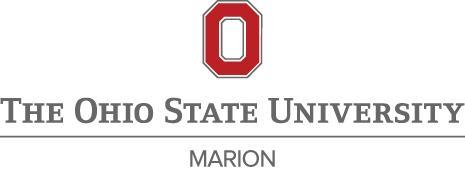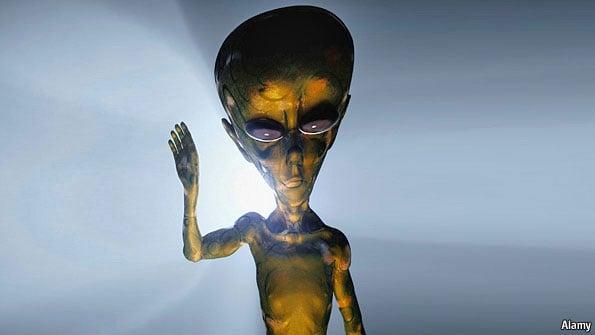ENGLISH PAPER
IMPORTANT NOTE: Please consult with the Marion Academic Advisor for English Majors, Shellie Shirk (shirk.20@osu.edu), or the Marion English Faculty Coordinator, Sara Crosby (crosby.91@osu.edu), concerning which English major concentration and/or other requirements are met by your choice of these courses.


ENGLISH 2201
British Literature from the Middle Ages to 1800
Nathan Wallace

MW 3:15 - 4:35 / 3 Credit Hours
In this introductory critical study of British and Irish literature from 800 to 1800, we will study major works of fiction, drama, and poetry such as the anonymous Anglo-Saxon epic Beowulf, Marie de France’s Lanval, Geoffrey Chaucer’s Canterbury Tales, William Shakespeare’s Othello, John Milton’s Paradise Lost, William Hogar th’s Marriage a la Mode, and Frances Burney’s Evelina. In addition to discussing their literary qualities, we will also consider these works’ meanings in historical and cultural contexts. Major themes of discussion will be: religious and political history through literature, the development of language and national identity, and women’s writing, and the central impor tance of theatricality in England par ticularly. In this class you will be responsible for study questions, two exams, and two essays.
This course fulfills GE Requirements for Literature and Diversity and Global Studies. It is also a requirement for the English Major.
FALL 2023 | COURSE OFFERINGS AT OSU-MARION
ENGLISH 2221
Introduction to Shakespeare, Race, and Gender

Nathan Wallace
MW 11:00 - 12:20 / 3 Credit Hours
In this course we will learn to think about race and gender through the lens of Shakespeare’s poems and plays. We will spend a significant amount of time learning Shakespeare’s historical context and making ourselves accustomed to Elizabethan English. Films will be available for every one of the eight plays we will study: The Taming of the Shrew, Titus Andronicus, The Merchant of Venice, Twelfth Night, Othello, Macbeth, Antony and Cleopatra, and The Tempest There will be weekly study question assignments, shor t presentation and performance assignments, and two exams.
This course fulfills GE Requirements for Race, Ethnicity and Gender
ENGLISH 2267
Introduction to Creative Writing
Nathan Wallace
MW 1:30 - 2:50 / 3 Credit Hours
An introduction to the writing of fiction, poetry, and creative nonfiction. Analysis and discussion of student work, with reference to the general methods and scope of all three genres.

Prereq: 1110.01 or equiv

ENGLISH 2269
Digital Media Composing “Do You Even Meme, Bro?”
 Ben McCorkle
Ben McCorkle
MW 1:30 - 2:50 / 3 Credit Hours

The Cloud. Social Networking. Twitter. Podcasting. ChatGPT. Ten years ago, we would have been scratching our heads trying to figure out the meanings of these cr yptic terms, but today, they are becoming increasingly commonplace for us. More and more, we have a hand in actively shaping the landscape that creates such terms: the Internet.
For this course, we will focus on the issues associated with creating digital media content (in other words, using computers to make meaning by combining words, images, and sound). In addition to examining the formal proper ties and social implications of digital media texts (the various genres of online discourse and how they circulate through the web), we will also investigate the practical, rhetorical, and ethical dimensions of composing in a digital world. No experience with digital media is required for this course, but during the semester, you will develop a digital por tfolio that includes a variety of smallish and larger projects using different combinations of images, audio, and animation. Texts will consist primarily of an online course packet of readings/viewings/listenings. For more information, contact Ben McCorkle (mccorkle.12@osu.edu).
Fulfills new GE for Literary, Visual, and Performing Ar ts.
ENGLISH 3031
Rhetorics of Health, Illness, and Wellness
 Katie Braun
Katie Braun
TR 11:00 - 12:20 / 3 Credit Hours
Whether browsing online, watching TV, or reading about the latest wellness trends, every day, we are bombarded with messages about what it means to be healthy and well. This class equips you with analytical tools needed to navigate the stream of all these messages. To do this, we’ ll examine the knowledges and values of health and wellness that circulate with a variety of texts including iconic images such as the food pyramid, mundane texts such as medical forms, informative distributables such as patient education materials, and social and enter tainment media such as YouTube videos. You will learn how to interrogate such texts critically and ethically and ar ticulate how these texts shape perceptions of what it means to be healthy and well. We’ ll use these analyses to consider how arguments and persuasion about health and wellness happen explicitly and implicitly and through a variety of genres and media.
Fulfills new GE for Health and Wellbeing.
ENGLISH 3110

Citizenship, Justice & Diversity in Literatures, Cultures, and Media
Sara Crosby
TR 1:30 - 2:50 / 3 Credit Hours
Resource extraction—who shares in it and who suffers from it—has determined who does and does not count as a citizen. Resource extraction has ruled our history and promises to dominate our future, and yet its story remains mainly a dir ty secret known only to insiders. In this class, we will unear th that secret and follow the story across continents and centuries. We’ ll track it from memoirs about gold-hungry Conquistadors to novels on the nineteenth-century ivory frenzy to films on the surreal battles over West Virginia coal to soap operas about the Dakota oil boom. In the process, you will gain insight into extraction mythologies, how they developed and why, and how they’re subtly and powerfully influencing the way we think of ourselves and our world.
Fulfills new GE for Citizenship.

“A Secret History of Gold, Coal, Oil & Ivory”
ENGLISH 3264


Monsters Without and Within
Sara Crosby
TR 11:00 - 12:20 / 3 Credit Hours
Nature is a Monster. Flying killer sharks, flesh-eating fungi, epic storms, hungry haunted houses, Godzilla, and our own weird and mor tal bodies! Why do humans seem so afraid of nature? Where did the horror come from? Could this fear be a reason we find ourselves in ecological crisis? Could understanding it be a way out? This class will explore these questions, among others, as we investigate “ecohorror.” Be prepared to follow this investigation down main roads and into strange corners of world literature, film, etc.—from Egyptian myths to gothic horrors like Frankenstein to “nature strikes back” flicks like Frogs to bestsellers by Jeff VanderMeer to Youtube series like Llamas with Hats. And, of course, Godzilla.
Fulfills new GE for Health and Wellbeing OR Citizenship.
ENGLISH 3360
Ecopoetics

“Animal Minds"
Sara Crosby
TR 9:30 - 10:50 / 3 Credit Hours
Animals. We love them, fear them, eat them. They are cute, and they are horrifying. They are aliens, and they are us. Why can’t we make up our minds about them? And what about their minds? What are they really thinking? Animals mediate our connection to our environment and our own identities. How we understand and treat them shapes how we understand and treat ourselves. This class will investigate that contradictory relationship and track how we have conceptualized our fellow ear thlings, as we explore texts from Aesop’s Fables and Edgar Allan Poe’s “The Black Cat” to the so-bad-it’s-good Birdemic and Youtube’s “Henri the Existential Cat.” In so doing, we will shed some light on animal minds—our own included.
Requirements: In addition to readings/viewings, etc., you'll do your own investigation of an animal of your choice and craft creative work around that animal.
Fulfills new GE for Lived Environments.
ENGLISH 3379
Methods for the Study of Writing, Rhetoric, and Literacy
 Ben McCorkle
Ben McCorkle
MW 9:30 - 10:50 / 3 Credit Hours
Have you ever wondered how we communicate? What makes language tick? Why we feel the need to reach out to people, be it with a spoken or written word, a silent gesture, or a love song? English 3379 will help you begin to answer those ages-old questions. Methods for the Study of Writing, Rhetoric, and Literacy introduces students to these interrelated fields and how we do our work within them. Together, this discipline studies the ways people use language and other symbols to convey messages, persuade audiences, and create meaning. Those who study writing, rhetoric, and literacy are also very concerned with how these practices are learned and taught. In one semester, we can only dip into the wide variety of work in these fields; this course is designed to introduce students to the key concepts in the studies of writing, rhetoric, and literacy and to allow students oppor tunities to pursue their own interests in relation to those concepts.
https://go.osu.edu/marion-pals


The Pride And Life Skills mentoring program (PALS) is a cooperative venture between The Ohio State University at Marion, Marion Mentors, and Marion Public Schools. PALS connects college students from the Marion campus with children in the Marion area to provide one-on-one mentoring opportunities for younger students. Marion Mentors matches program volunteers with school-age children and provides them with the necessary resources and support to direct them through the mentoring process. Students earn 1-credit per semester of independent study by attending mentoring sessions regularly, coming to occasional meetings, and critically reflecting on their mentoring activities.
For further information contact:
Ben McCorkle • mccorkle.12@osu.edu
Nikole Patson • patson.3@osu.edu
ENGLISH 3465
Special Topics in Intermediate Fiction Writing
Stuar t Lishan

MW 1:30-2:50 / 3 Credit Hours
English 3465 (Special Topics in Intermediate Fiction Writing – with an Emphasis on Speculative Fiction) is a requirement for Creative Writing Concentration and one of the elective requirements for the other concentrations in the English Major

This is a course whose goal is amazement. It’s a class in the writing of imaginative stories, par ticularly fantasy, science fiction, and horror. We’ ll investigate the ecosystem of what makes a good story, and then we’ ll engage together in world building. Our settings will dazzle us. We’ ll touch upon the various truths of ourselves and the world around us by going outside of our skins and into the minds and hear ts of fantastic beasts and creatures. We’ ll write and share dazzling stories that have never been imagined before. In shor t, we’ ll be writers of speculative fiction, fellow magicians of the sweet words. Feel free to shed your preconceptions and come aboard.
Note: If you haven't had English 2265 (Writing of Fiction I), English 2266 (Writing of Poetry), or English 2267 (Introduction to Creative Writing), you may need to contact me, your dance instructor of the sweet words, for permission to enroll in the course, because Brutus may star t acting funky if you don’t.
Texts: Wonderbook (The Illustrated Guide to Creative Imaginative Fiction), by Jeff Vandermeer; an anthology of speculative fiction (TBA); and, of course, the texts that you create.







 Ben McCorkle
Ben McCorkle
 Katie Braun
Katie Braun



 Ben McCorkle
Ben McCorkle

